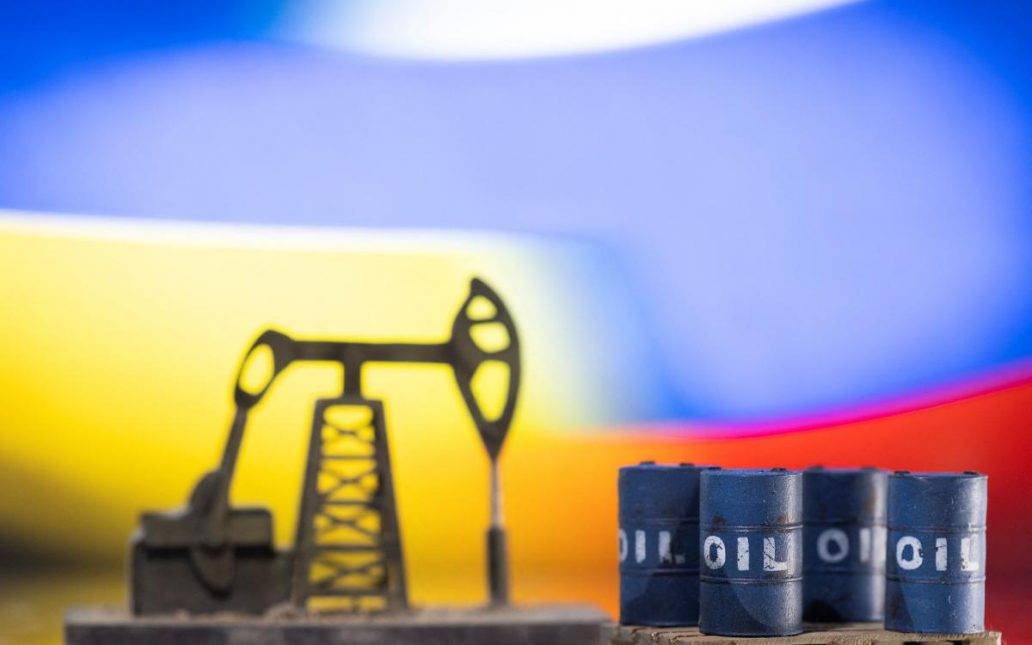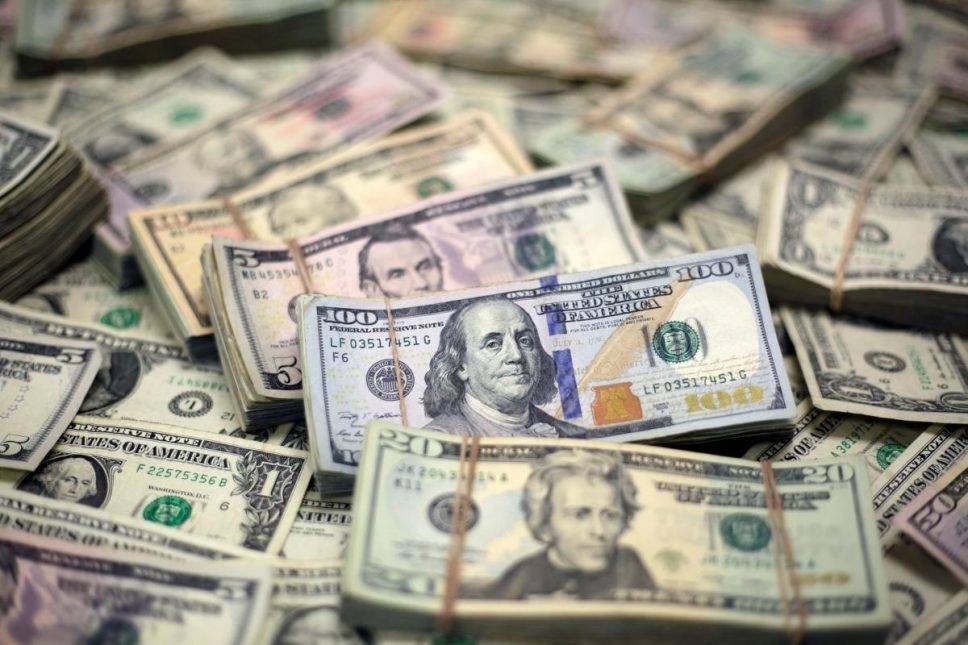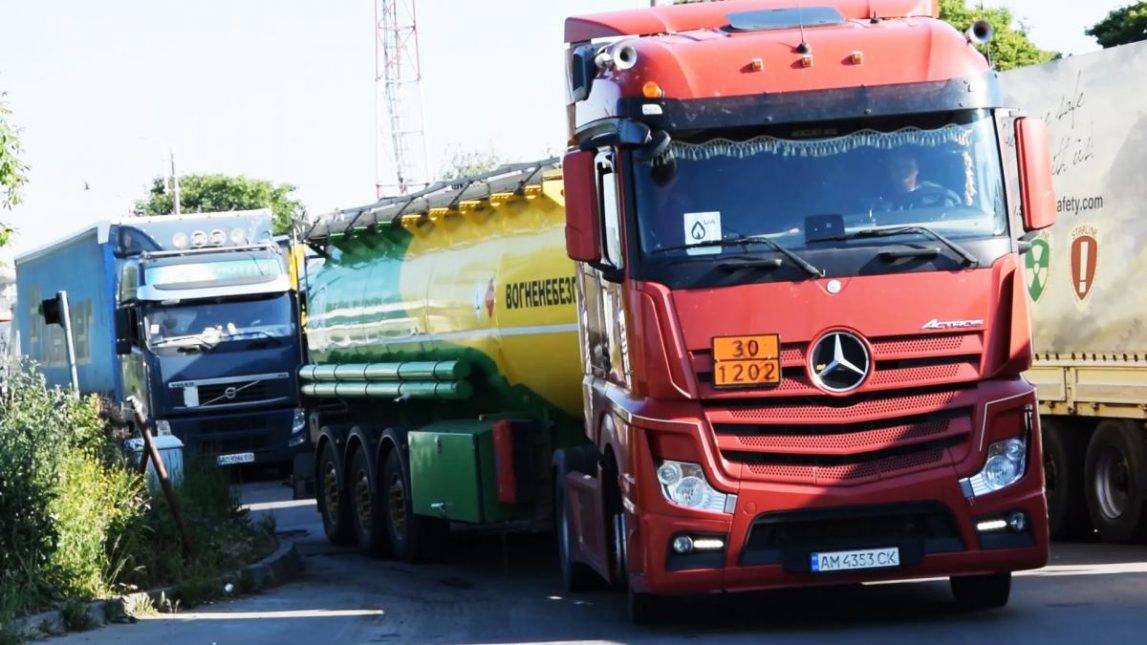
How EU embargo on Russian oil can change the course of the war
The long-awaited EU sanctions against the bloody Russian oil entered into force 5 December 2022. They are expected to undermine terrorist Russia’s financial ability to pay for the war. What will be the consequences of this decision and will Ukraine and Europe have enough fuel?
The long-awaited decisions of the European Union expected to deal a devastating blow on the bloodthirsty Putin regime have entered into force. On 5 December, the EU introduced sanctions blacklisting Russian oil from the European market, the key market for Russia. The EU refuses to buy oil from the terrorist country. Furthermore, a price ceiling will be set for selling Russian oil through third countries.
The price cap on oil originating in Russia or exported from Russia is set at $60 per barrel. The price cap will be revised every two months and set at a level that is 5% lower than the average market price of Russian oil and oil products.
The Kremlin cronies have already stated that they would not submit to this rule and will cut all supplies if price restrictions remain in effect. If that happens, it will be another “good will” gesture of Russians in the form of a shot in their own foot, which will make Ukrainians very happy. Moreover, on February 5, 2023, the ban on sea-borne imports of Russian oil products will enter into force.
According to the International Energy Agency, the EU countries are the biggest consumers of Russian energy resources. Prior to the war, they accounted for 50% of all consumed oil from Russia, followed by China, India and other countries. This means that as soon as this winter, the EU, UK and the U.S. will stop shipping Russian oil, blocking a significant part of oil exports from the “gas station – country”. Aggressive Russia will therefore be deprived of its oil revenues and will be forced to reorient mostly to Asian countries, where it will be able to offer its energy resources only at a significant discount.
For all of us, the European blow on the Russian energy sector will mean that the country that has been waging a bloody and destructive aggression against Ukraine for ten months, will receive significantly less money, which means that this terrible war can end sooner.

Oil embargo in force
Volodymyr Omelchenko, Director for Energy Programmes at the Razumkov Centre explained that once the embargo is in place, it will be much more difficult for Russia to sell its oil to global markets, even using illegal schemes. In addition, due to the decline in demand, the “gas station – country” could shut down almost a quarter of its oil deposits for good. “There are 180 wells in Russia. Russia will have to shut down about 40,000 wells because of the embargo alone. This means they could be closed for good. This is a huge blow to Russia’s industry,” he said.
The International Energy Agency expects Russian crude oil production to drop by about 20%, or two million barrels per day, by the end of the first quarter of next year.
In addition, as a result of the embargo on oil products, which will come into effect in February 2023, the Russian budget will lose about $70-80 billion annually, or about a third of the revenue part. And this will have a very serious impact on the Russian economy, Omelchenko believes.
Natalia Shapoval, Vice President for economic and political research at the Kyiv School of Economics, explained that, with sanctions in place, Russia will earn approximately $356 billion from the sale of its own energy resources this year. “Had there been no sanctions against Russia and the companies not refused to work with the country, Russia would have earned three or four times more,” she said.
Despite this, most experts consider the introduced embargo to be insufficiently tough.
Oleksandr Khmelevskiy, expert and PhD in Economic Sciences, informed that the Russian oil embargo introduced by the EU on December 5 includes a number of exceptions. For example, Russian oil will be supplied through the Druzhba oil pipeline to the Czech Republic, Slovakia and Hungary until the end of 2024, which accounts for around 11% of Russian oil export to the EU.
In addition, the EU allowed Croatia to import Russian oil until the end of 2023, and Bulgaria – until 2024.
“There is an oil refinery near the Bulgarian city of Burgas owned by the Russian company Lukoil. This means that Russian oil is supplied to this refinery, processed, and oil products are sold in EU countries,” he said.

Price punishments for Russia
Natalia Shapoval, Vice President for economic and political research at the Kyiv School of Economics, explained that the price cap on the sale of Russian oil that entered into force December 5 will work in the following way: China, India, Turkey and other countries that have not imposed an embargo on oil products can use the services provided by the West, including oil tankers, insurance and financial services, only if they buy the oil within the set price cap.
“These services from the West account for 60 to 90% of the market, so this is a very serious motivation,” the economist believes.
Shapoval estimates that Russia’s revenues from the sale of oil in 2023 will amount to around $166 billion, provided that the price cap is in effect throughout the entire year.
On the one hand, such measures indicate serious progress of the countries of yet rather cautious West in forcing the Russian aggressor to peace. On the other hand, this is not enough to stop the “death machine” of Vladimir Putin.
“The decision to set the price cap for Russian oil at a level that is entirely comfortable for the terrorist country’s budget cannot be really regarded as serious. Russia has already inflicted colossal losses on all countries by deliberately destabilizing the energy market. Meanwhile, the world cannot dare to truly disarm the aggressor in terms of energy. This is a weak position,” Ukraine President Volodymyr Zelensky commented on the situation.
Ukraine will insist on a twice lower price cap for Russian oil and oil products. A study by the international working group on sanctions against Russia showed that setting the price cap at $30-35 per barrel would immediately cause serious financial pressure on the Russian Federation. This would reduce bloody Russia’s revenue from oil and gas exports by one hundred billion dollars.
Economist Shapoval explains that the price cap is actually set at a cautious $60 per barrel because Europe and the U.S. want to first test how this capping mechanism will work. Previously, such levers had never been used in the world and it is worth seeing how the grey and black market will work.
“Everyone wants to see if China, India, Russia and others accept these conditions, if they sell oil under these conditions and how the market will adapt,” she said.
After some period, the price cap will be revised.
For Asian countries, this mechanism is also beneficial, because it actually means an opportunity to buy Russian oil at much cheaper prices. However, this will only work if the market value itself does not fall to the level of the price cap.

Changes in the oil market
The caution of European countries regarding the parameters of the price cap on Russian oil can be explained by the fear of a temporary shortage of fuel in the market, which strongly depended on Russia oil for many years.
Expert Oleksandr Khmelevskiy explained that a global reorientation of oil supplies is actually taking place. Countries such as the USA, Nigeria, Angola and others have increased oil supplies to Europe. Suppliers from the Middle East and Africa are also increasing oil supplies to this market and reducing supplies to Asia, while Russia, on the contrary, is trying to take their position on the Asian market.
“No significant increase of oil prices in Europe is expected. However, there could be a certain shortage of diesel fuel. Russia’s share in the European diesel fuel market remains at 50%,” said the expert.
Most likely, Europe will be able to adapt to the new situation rather quickly and temporary difficulties will be overcome. A stable fuel market in Europe is extremely important for Ukraine, as it is the main source of gasoline and diesel fuel supply to our country.
Khmelevskiy is confident that no significant interruptions in the supply of oil products to Ukraine are expected. The increase in prices for oil products in Ukraine will be largely determined by the further devaluation of the hryvnia. The moderate increase in gasoline prices – by two to three hryvnias per litre – is also due to the significant demand of Ukrainians for power generators that are helping us survive power outages and rolling blackouts.
After a certain period, the European Union will be forced to significantly lower the price cap for Russian oil, if the EU has a real desire to stop the military aggression of the Russian Federation against our country and the suffering of millions of people. Clearly, it is not easy to do it quickly after decades of significant artificial dependence on cheap Russian energy resources, but the political will and economic practices of the democratic world are moving in the right direction. It is a pity, however, that we are losing the lives of our best people every day, while someone hesitates and counts money.
Despite all the hardships, Ukraine will certainly win this fateful war, which will isolate the rogue state from the global economy for many years, deal a significant blow on Russia’s energy sector, and crash its desire to wage wars of aggression and terrorize its neighbours.
Media, Publications
-
Deputy Ambassador of the EU on enlargement, reforms and €190 billion in support
-
EU membership in 2030? Deputy Ambassador of the EU answers students’ questions
-
How does the EU take decisions on Ukraine? Subsidiarity, unanimity and consensus among 27 countries
-
What reforms does Ukraine still need to join the EU? Deputy Ambassador of the EU answers
-
How can Ukrainian students become more involved in EU programmes and projects? Deputy Head of the EU Delegation answers
-
Are there alternatives to European integration if the road to the EU is long? Deputy Ambassador of the EU answers